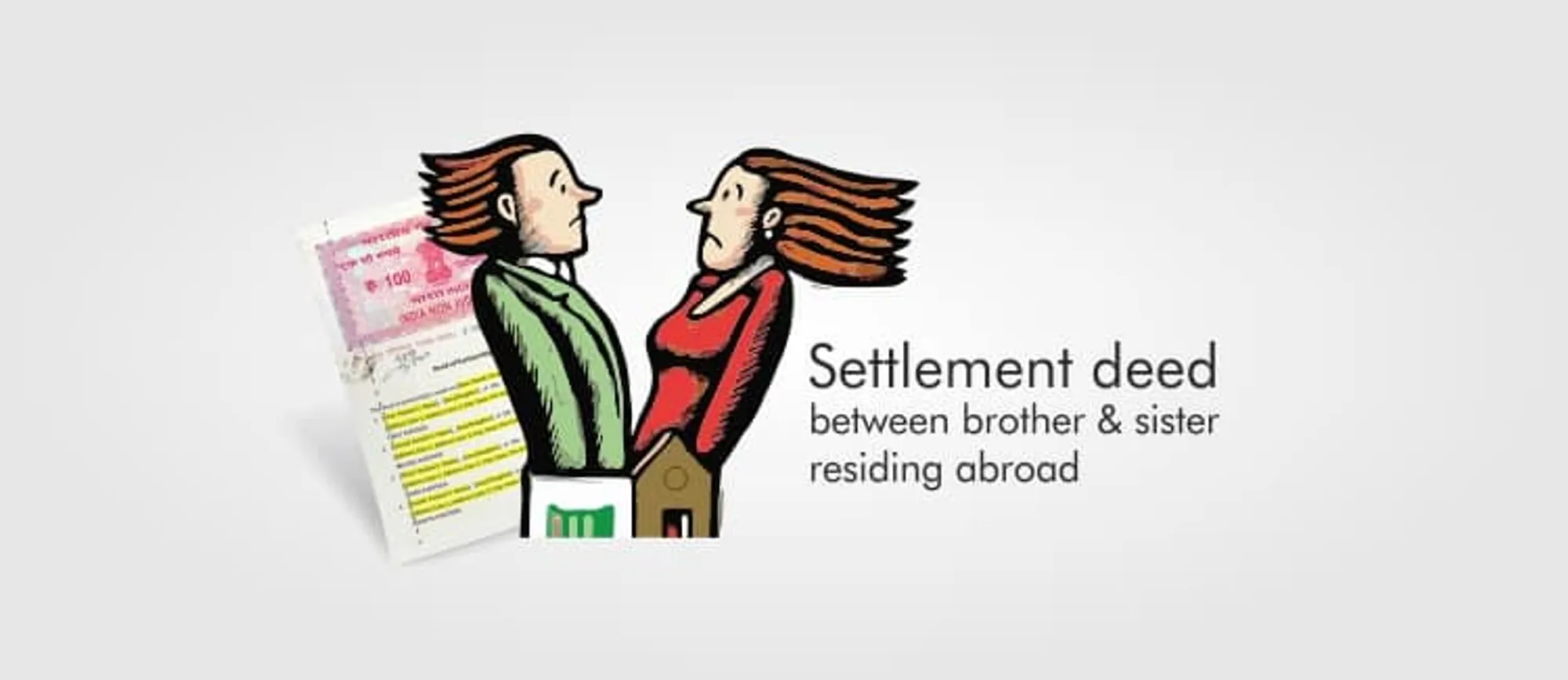Settlement deed is a legal document where parties to the deed settle their differences/disputes. The disputes may be related to court cases, property division, payments etc. A settlement deed between brother and sister living abroad may refer to any of these.
Generally, a settlement deed between brother and sister is a family settlement deed, and most often it is related to the division of property. Settlement deed is a legally enforceable document.
Table of Contents
Requirements of Settlement deed
Settlement deed is essentially an agreement.
- Like any agreement, settlement deed has to be based on mutual consent of all the parties, and such consent should be free from coercion, fraud or misrepresentation.
- Settlement can be oral or written
- If in writing, it must be signed by all the parties
- Attestation by two witnesses
All the brothers and sisters must sign the settlement deed if it relates to the division of family property in which all have a claim. If any of the brother or sister is excluded, the deed is liable to be cancelled. Settlement deed once executed is binding between the parties to it.
Read More: Division of Property Among Daughters and Daughters-In-Law
Registration
A family arrangement can be oral or in writing. If it is oral, it does not require any registration, but if it is in writing, then the terms of the deed decide whether it is to be registered or not.
A family settlement deed between brother and sister for distribution of property must be in writing. In case of settlement deed for disposition of property, the property can be:
- Moveable – jewellery, shares etc
- Immoveable
- Cash in bank accounts
If the deed purports to assign an immovable property, the settlement deed must be mandatorily registered. The stamp duty is payable as per the value of the property.
If it is compulsory to register the document and the same is not registered, it carries no evidentiary value in the court. It may act as an estoppel against the family member who has signed the document and has gained out of it. However, if it is not mandatory to register a document and it is not registered, it can be used in evidence.
Payment of stamp duty and registration can be done through an agent (power of attorney holder for the s purpose) if the parties are NRIs and are not present in India.
Read More: Property rights of a wife after husband’s death
Can the settlement deed be executed abroad?
The settlement deed between brothers and sisters residing abroad can be executed in the country where they reside. If the settlement deed relates to property division and has been executed abroad, the stamp duty is payable in India and registration, if mandatory, is done in Sub Registrar’s office where the property is located.
Otherwise also, for any document executed abroad and to be used in India, stamp duty is paid in India at the office of the Sub Registrar, within three months after it is first received in India. The concerned officer will authenticate the said document.
Any signed document should be presented for registration within four months of its execution. If the document is executed abroad, the time of four months begins from the date it is first received in India.
Grounds for challenging Settlement deed
Some grounds can be
- Coercion
- Fraud
- Misrepresentation
- Improper execution
As settlement deed can be cancelled if the parties mutually agree to do so by executing a cancellation deed. Otherwise, a suit can be filed challenging the same on any of the grounds available for the same.
Read: Importance of Encumbrance Certificate (EC)
It is always advisable to seek legal advice for the preparation of settlement deed and completing other legal formalities. A settlement deed is good alternative to litigation to settle disputes.

